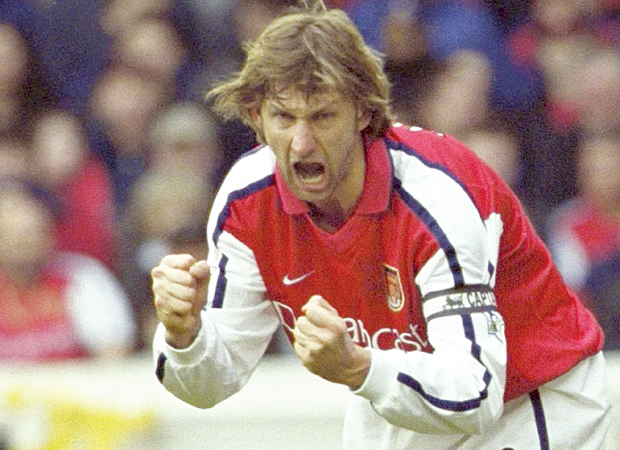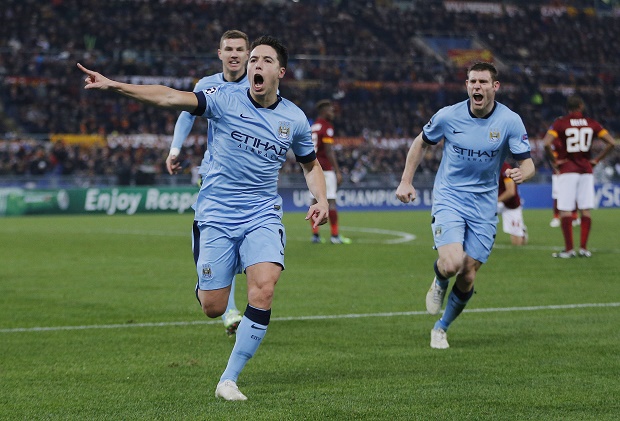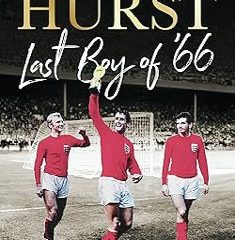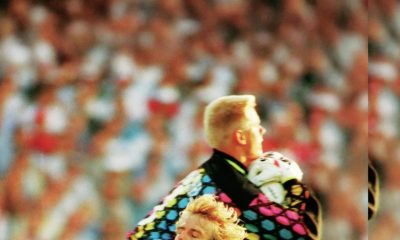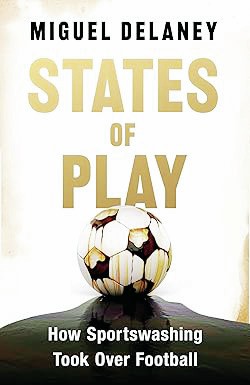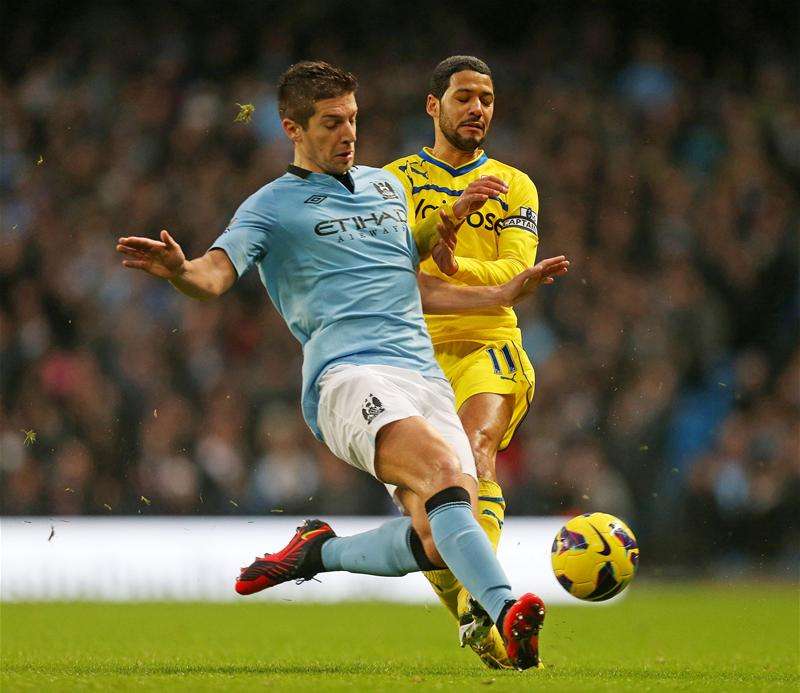
 By Jacob Graham
By Jacob Graham
Football fans often moan nowadays that they don’t see many home-grown players in their team.
There are certainly not as many English players playing for the top clubs, or lower division ones for that matter, as there used to be.
It is no coincidence that the England football team seem to be miles behind the other top nations of the world when it comes to major tournaments.
Manchester City are often targeted more than other Premier League clubs when it comes to the lack of players who have come through their academy.
With the amazing academy facilities which they boast and the success which their academy teams have, why do these talented teenagers not make it into the first-team?
The lack of opportunities given to City’s youngsters has been one of the main criticisms of Manuel Pellegrini during his almost three seasons in charge.
City fans are expecting success under Pep Guardiola next season, but they also want to see success achieved by local lads, produced from the academy.
Unfortunately, I’m not convinced this will happen despite the appointment of Guardiola.
City’s new academy base cost over £150m and eradicated any fears the Sheik Mansour wasn’t in this project for the long-term.
The academy training base contains 16.5 football pitches (the half pitch is where goalkeepers Joe Hart and Willy Caballero train) and 75 per cent of the players who play for the academy teams are from the Greater Manchester area, yet we are seeing no evidence of this in the first-team.
The academy is brilliant for the youth players in terms of facilities. But the players need to be highly talented to even be considered when you think they’re competing with the likes of Sergio Aguero, David Silva and Kevin de Bruyne for places.
It leads me to question the point of the City football academy. Is it there simply to feed players into the first team? I don’t think so.
I reckon it’s also there to make money. You may raise your eyebrows at that, but it’s simple really.
City bosses know that these youngsters coming through have got to be very good to even get the tiniest of chances in the first-team. However, they also know that not everyone’s standards are as high as Manchester City’s.
Therefore, they can make a profit on these players that they’ve nurtured. City do this a lot – sometimes you don’t even notice.
For example, Rony Lopes signed for City as a 16-year-old from Benfica in 2011. Probably his most notable appearance came in the second leg of the League Cup semi-final in 2014 when he assisted both Alvaro Negredo and Aguero in a 3-0 win against West Ham.
He didn’t feature on many other occasions. Man City couldn’t make use of him. Some would say he wasn’t good enough, others would say he wasn’t given a fair chance.
Whatever the truth, Monaco were more than happy to take him – and they took him for a sum of £9m. An awful lot of money.
There are plenty more examples. Dedryck Boyata also joined City as a teenager. After a bit more first-team action than Lopes, he was sold on for £1.5m to Celtic.
Karim Rekik, like Boyata and Lopes, joined the Blues in his teenage years. He started in defence against Reading just before Christmas 2012 and played 84 minutes. After a couple of loan moves, he was sold to Marseille for £3.5m…
These three transfers all took place at the beginning of this season. All three players came through the academy in some way and they were sold for a total of £14m, an impressive amount.
It suggests that the undeniably impressive academy campus isn’t just there to nurture players in the hope that one day they will pull on the Blue jersey at the Etihad Stadium. It’s also there for financial reasons.
Obviously, the primary aim of football academies is to produce players but when you’re at the bigger clubs you’re only going to find a player up to the standard of the likes of City, Chelsea and Arsenal once in a while. But by no means is it the only aim.
Frankly, City fans and other fans of Premier League clubs need to accept in the day and age that we live in that you can’t have the best of both worlds.
You can’t expect to have a team full of local lads who are challenging for all four trophies – it’s simply not going to happen.
In years gone by there have been academy graduates in the Man City team. You can think of Micah Richards, Nedum Onuoha, Michael Johnson and Stephen Ireland off the top of your head.
However, the team that these four, among other academy graduates, played in wasn’t challenging for four trophies a season. In fact, they weren’t even in four different competitions.
The aim at that time was not to win trophies but to stay in the Premier League. At the standard that we Blues are watching our team at the moment, we can’t expect academy players to be good enough for that level – it’s very unrealistic. This isn’t helped by the huge step-up which it is for players from the U21s league to the Premier League.
It’s a lot harder now for Premier League clubs to give youngsters a chance in their teams. You may wonder why but when each place in the table means so much in terms of prize money at the end of season, managers would prefer to go with what they know, ie: experienced players, rather than give a talented youngster a chance.
Man City have lots of talented kids and if they were at a Football League club, they would probably already be impressing in the first team but Premier League managers need some persuading to give them a chance.
This isn’t a good thing because it is almost as though players are wasting away playing in the excuse of a competitive league which is the U21s Premier League.
One of the huge positives of City’s season to date has been the find and the form of Nigerian teenager Kelechi Iheanacho.
The Nigerian international’s middle name is Promise and he showed he certainly had plenty of that by scoring nine goals in 21 games by mid-February.
Despite the striker being just 19 years old and already looking as though he has every chance of going onto be a world-class player, City fans can’t claim that he is really a product of the new City academy – he joined the club as an 18-year-old.
However, what it does show is that when young players get some faith shown in them, then they’re more than capable of performing. In many City’s fans eyes, Iheanacho is ahead of Wilfried Bony in the pecking order now.
So, going forward, what should clubs be doing to try to get their academy players up to a standard which is suitable for the Premier League?
I think there is only one answer – if you’re aren’t going to give them a chance then loan them out to the Football League!
Give them game time. Put them in a position which is out of their comfort zone. Make them play three games in a week. Only by doing all these things will players improve to the standard which Premier League clubs want them to be at.
If you allow these talented players to sit at home all week, playing one game a week, sometimes not even that, in a far from competitive competition, they won’t improve. You could even see a dip in quality. With the huge amounts of money that football clubs are now receiving from TV rights, I don’t see academy players getting any more of a chance in their respective first-teams as they are now.
If things go as I predict, then the English football team is likely to keep going in the wrong direction.
If you look at other top European nations, for example Spain and Germany, their players begin playing early for the top clubs in their respective countries.
In England, this doesn’t happen and, when it does, you see the benefits. All you need to look at is the likes of Tottenham’s Dele Alli and Manchester City’s Raheem Sterling.
They were given first-team chances early at Spurs and Liverpool respectively and they took them. The pair will both be fighting for places in Roy Hodgson’s starting XI in France this summer.
I hope I’m wrong, I really do, but I can’t see things changing. Clubs would rather gamble by spending big money on a proven player than give a youngster a chance.
It’s shown time and time again in the Premier League. No matter how good clubs’ academy facilities are, the players who play at them still don’t get a fair shot in the first team.


Book Reviews
Book Review: Chris Towers finds right mix

Book Reviews
Book Review: Sir Geoff Hurst hits net
